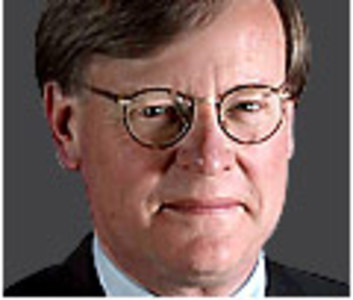For more than a century, and up until very recently, the Liberal Party formed the sturdiest political bridge between French-speaking Quebec and the rest of Canada.
Being that bridge meant winning national elections. It made the Liberals the country's "natural governing party." Now that bridge has collapsed. So might the Liberals as a serious national party.
Monday's by-election results were catastrophic for the Liberals in Quebec and bad nationally too. Yes, by-elections are only a snapshot. Yes, people aren't voting for a government. Yes, by-elections are less than a perfect political test.
Still, the three Quebec by-elections were the first serious electoral test for Stéphane Dion, and he flunked. Restlessness about his ineffective leadership will increase, carping about his staff will intensify (two Quebec organizers quit on him) and glee in Conservative circles will be palpable.
Conservatives did splendidly, capturing Roberval-Lac-Saint-Jean from the Bloc Québécois in the nationalist Saguenay region and nearly toppling the Bloc in another riding.
With the Bloc in decline, the Conservatives are gaining soft nationalist voters who appreciate Prime Minister's Stephen Harper's description of Quebec as a "nation," agree with his "open federalism," and appreciate the gestures, gifts and money he has bestowed upon the province.
The Liberals appear as the party of yesterday in Quebec: the sponsorship scandal; the old, sharp, debilitating federalism/separatism battles. Today, with even the Parti Québécois putting separatism on the shelf, the federal Liberal role as counterpoint doesn't seem worth playing.
Instead, political Quebec is dominated by which party - federal or provincial - can craft even more distinctiveness, power, money and institutions for Quebec within Canada. The struggle is between separatists who can't take Quebec out of Canada and "federalists" who won't defend Canada, except as something from which benefits can be extracted.
Mr. Dion has little to offer within this political culture. Instead, he has wobbled around, neither standing up for a strong central government nor being able to position himself within the nationalist debate.
When Mr. Dion opined election night that he was delighted "federalist" parties had beaten the Bloc, the comment dated him. It echoed old debates. And when, in the face of his party's humiliating results, he could not show contrition or humility, he displayed a tin ear, even arrogance. It is one thing to have pride, but another not to say something like, "We have been sent a message, and we will reflect on it."
How bad was the Liberal catastrophe? The party only got 29 per cent of the vote in Outremont, a Liberal château fort, 18.5 points less than the NDP that benefited from having a popular candidate (a former provincial Liberal minister) and a massive vote switch in its favour from Bloc supporters who wanted to defeat Mr. Dion and the Liberals.
(Hyperventilating New Democrats should calm down. The party won a nice by-election victory; it is not an NDP breakthrough in Quebec, regardless of party leader Jack Layton's "winds of change" rhetoric.)
In the other two seats, the Liberal vote was in single digits! The party ran fourth in Saint-Hyacinthe-Bagot, behind the NDP! It doesn't get more marginal than that.
In Outremont, Mr. Dion anointed the candidate, a cerebral commentator and professor like himself. But lots of organizers and workers stayed away. The Michael Ignatieff forces that control the Quebec wing of the party did little.
The flood of big-name federal Liberals in the campaign's final days bespoke panic, and showed the feebleness of the local organization. If it's feeble in Outremont, imagine how pathetic it is elsewhere.
Which raises for Liberals the troublesome question: If the party is marginal in Quebec, even with a Quebec leader, what happened to the historic role as political bridge, which made Liberals the dominant party for a century?
The erosion of that bridge began before Mr. Dion's arrival. It's been going on since the end of the Trudeau era. The Chrétien years masked the Liberals' decline. Conservatives under Brian Mulroney captured the province twice. Then the Bloc Québécois became the dominant federal party, although the Chrétien Liberals won enough seats to claim credibly to be a national government. Now the fight is on between the BQ and the Conservatives, with Liberals as spectators.
Spectators don't form governments.
jsimpson@globeandmail.com























Laissez un commentaire Votre adresse courriel ne sera pas publiée.
Veuillez vous connecter afin de laisser un commentaire.
Aucun commentaire trouvé